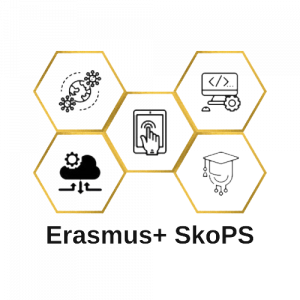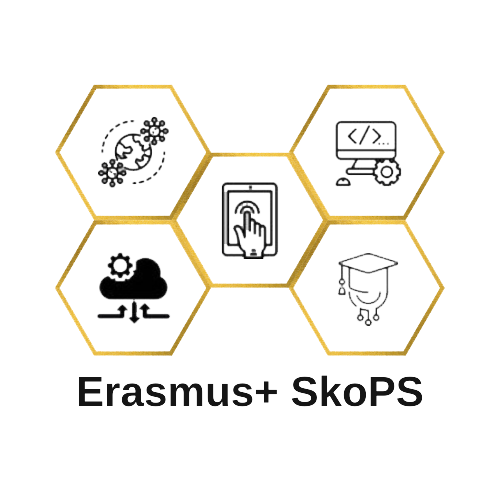According to the survey of World Economic Forum, the Digital Transformation, especially in Industry (Industry IoT / IIoT), is one of the top technological drivers of change for the future of jobs, employment, skills, and workforce strategy in the 4th Industrial Revolution. On one hand, the preparation of the European workforce for such an enormous diversity of skills in the field of digital transformation requires the support of the Higher Education Institutions (HEI) towards integrating IIoT skills. On the other hand, the pandemic situations negatively affect the quality of the support of HEIs in this respect and force the HEIs to limit their face-to-face activities and a sudden shift to online and distance learning as a result. For example, based on the survey on the impact of the COVID-19 on European Universities (May 2020,), 88 HEIs out of 92 HEIs have provided distance learning opportunities to 60% or more of their students, and 58 HEIs stated to have implemented online courses [https://ec.europa.eu/]. As a result, the HEIs plan the quicker move with more funds to digital transformation. Also, the pandemic situation affects mobility matters. The survey also described that the COVID-19 crisis has negatively affected 86 out of 92 HEIs in student mobility and 81 out of 92 HEIs in staff mobility. Therefore, the activities including blended mobility formats (i.e. short physical mobility that is blended with virtual mobility) and the development of online courses and virtual support are of the utmost importance in response to the pandemics. Furthermore, for this development to be considered successful, the design of all the activities need to make sure that they are not leaving anyone behind, and that they are ensuring equal opportunities among people of all backgrounds. In particular, the design of these activities needs to aim at shrinking the gender gap in ICT-related disciplines, which is currently causing both vertical and horizontal job segregation (Verdin et al, 2018) [doi:10.3390/socsci7030044], and also to diminish inequalities due to disabilities. Only by taking these aspects into account, the HEIs can fulfill their commitment with the society to contribute to a preparation of the European workforce that is truly inclusive.
The main goal of the SkoPS project is the inclusive empowerment of the European workforce development through online/virtual skills training for digital transformation towards mitigating the impact of pandemic situations, taking into account the support of HEIs to boost the up-skill and re-skill readiness in society and industry. This project promotes the skills of engineers and workforce in the domain of IIoT, one of the most influencing and emerging technologies with significant economical and social benefits as well as trade and collaboration potentials. The project explicitly includes the gender and accessibility perspective. SkoPS is particularly designed to equip education based on virtual cooperation of its network around the EU and targets the growing demand for professional IIoT skills by providing innovative and inclusive methods and digital tools for blended teaching, training, learning, and assessment including open-access IIoT online courses and webinars especially designed for the European workforce. In this regard, SkoPS strengthens the virtual cooperation and networking between its partners and across the EU to provide the required skills towards improving the competitiveness of the European workforce through the safer support of digital technology. In order to meet this objective, the consortium delivers open-access online/virtual training materials consisting of state-of-the-art skills based on the IoT curricula at HEIs at the European standard levels. A selection of the courses will be designed to be accessible to as wide an audience as possible and will be designed with the aim to attract more women to the IIoT field. The provided courses and webinars are adapted to the newest online training materials of the European partners of the project and fill the training gaps in the European Workforce. The virtual skills training and periodical live Q&A sessions’ programs will be available on the project website and the users will have access to an online/virtual education portal that includes all the skills training materials. The online support center will check the responsiveness of the virtual/online training platform. The consortium for the strategic partnership consists of four partners from three European countries ranging from academia to industry. The involvement of non-academic partners ensures harmonizing the workforce training courses and webinars with the market and industry needs. In particular, the consortium delivers accessible and inclusive courses and webinars with state-of-the-art skills in digitalization for engineers and experts following European standards.

Empowering the European Workforce Development through Online/Virtual Skills Training for Digital Transformation towards Mitigating the Impact of Pandemic Situations

